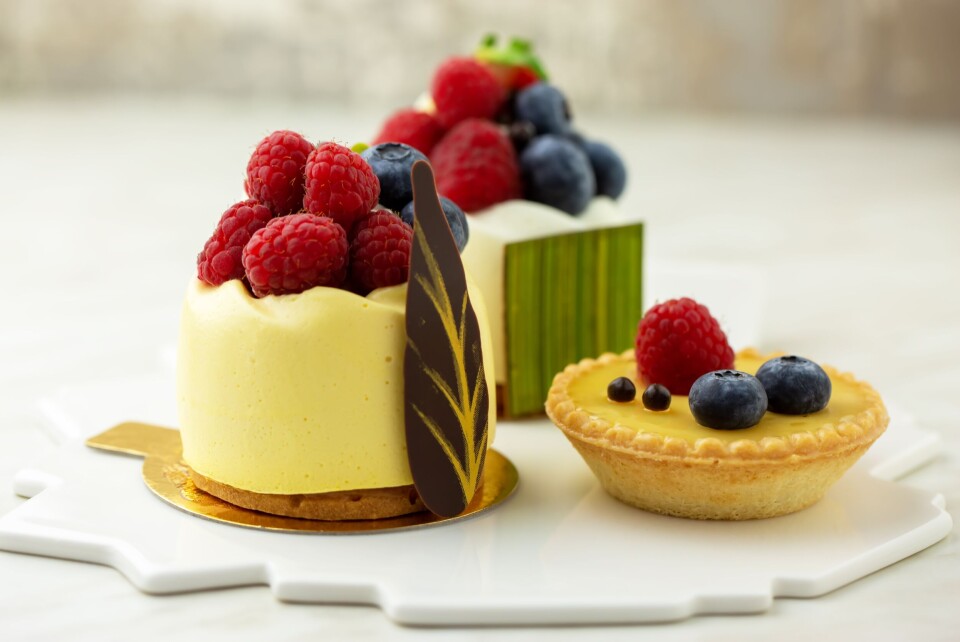-
Hungry, peckish, stuffed: 11 French phrases to do with food and eating
These phrases help to talk about one of the most important subjects in France - food
-
Digital ID to be accepted at French airports this summer
Scheme not open to non-French residents despite plans to include certain card holders by the end of 2025
-
AI usage on the rise in France but lags behind UK and US
Uptick in generative AI usage outpaces smartphone and internet adoption across similar timeframe
Patissiers watch out? Normandy start-up creates 3D-printed patisserie
The company’s ‘culinary printer’ creates biscuit-cake-like structures that patissiers can add to. It denies that it is trying to ‘replace the pastry chef’

A Normandy start-up is using 3D printers to create intricate patisserie that can safely be eaten, and provides detailed templates that patissiers can use as a base for extra decorations and creativity.
The 3D ‘culinary printer’, which the start-up says is a “world first”, uses a liquid cake mixture made with food powder (in ‘plain’ or chocolate flavour) to create a biscuit that then hardens. The printer nozzle builds up the design layer by layer, to create a definite form according to the original design.
The printer and process were created by La Pâtisserie Numérique, founded by Marine Coré-Baillais, who is a graduate of the prestigious business school, ESSEC.
The printer can create many different designs, but it can only make the ‘biscuit-cake’ structure. A patissier is still needed to add other elements, including mousse, fruit, puree, cream, or other extras.
Depending on the ingredients used, the machine can create vegan and gluten-free mixes, as well as those free from other allergens.
‘Our objective is not to replace the pastry chef’
Julien Kistner, an engineer at La Pâtisserie Numérique, said: “The aim is to free up time for pastry chefs so that they can concentrate on creativity, the assembly of tastes, textures, and colours to make something super gourmet.
“Our objective is not to replace the pastry chef but to allow them to automate their low-value tasks.”
The machine is so far intended for a professional clientele, including bakers and patissiers, to help them make their work more cost-effective and efficient.
The start-up said: “This patented technology should enable the manufacturer to increase profitability by almost 26%, by saving time on the making of cakes [and] to reduce the costs of silicone or steel moulds."
Funding and development
The company has also signed a development contract with Jacquet Brossard group to design a 3D-printed patisserie. It has also said that in future, it may create a version for home use.
Founder of the company, Ms Coré-Baillais, took a course in patisserie ahead of working on the project, so that she would have extra knowledge and skills in the field, in order to improve her product.
She funded the start-up via a call for funds from the Fast Forward Agrifood project, which was launched by the Agence de Développement pour la Normandie (ADN). The 200m2 workshop is now located in the start-up hub La Pépinière 4.0 at Le Hub in Louviers (Eure).
This workshop will enable the start-up to carry out tests and demonstrations, and chef training. Future machines will also be manufactured in Louviers, with 25 machines currently being made.
Eventually, the start-up is aiming to rent its printers to pastry professionals for €500 a month. Some chefs have already signed up.
The company is now set to begin a new round of financing in 2023-24. It currently has 11 employees, but is aiming to expand to 75 staff members in the coming years.
Pastry chef reactions
One chef in Le Havre, who had already heard of the printer, told France 3: “I think it could be really useful for saving time, especially in very large patisserie shops. It could definitely be helpful. But personally I don’t need it, as I only have a small business.”
Another chef in Rouen, however, was more reticent. He said: “I don’t see the point of going in this direction. Technically, we could move towards this type of machine, but it goes against [the ethos] of the craft industry.”
























